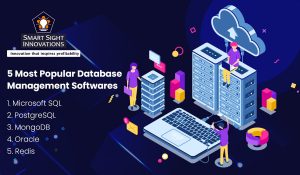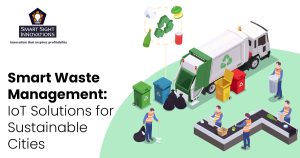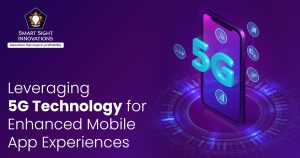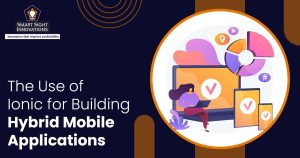 Synopsis: Databases are the backbone of software applications. You need one or more databases to develop almost all software applications such as AI, ML, Web, Enterprise, Embedded Systems, Real-time Systems, Blockchain, IoT, and others. Applications with global scaling, semi-structured data, big data, fast data, and low latency data now join traditional SQL IS NoSQL, NewSQL and cloud databases. With the advent of modern software development, choosing the appropriate database can be daunting. Knowing how they work can help. Hiring one of the leading database development services will take you in the right direction.
Synopsis: Databases are the backbone of software applications. You need one or more databases to develop almost all software applications such as AI, ML, Web, Enterprise, Embedded Systems, Real-time Systems, Blockchain, IoT, and others. Applications with global scaling, semi-structured data, big data, fast data, and low latency data now join traditional SQL IS NoSQL, NewSQL and cloud databases. With the advent of modern software development, choosing the appropriate database can be daunting. Knowing how they work can help. Hiring one of the leading database development services will take you in the right direction.
A database management system minimizes data redundancy and stores data efficiently. It is a system responsible for creating and managing data and retrieving or updating it at short notice. However, a company must select a database management software according to its specific requirements. Make a selection based on popularity, key features, trend, mainstream usage and successful future.
-
Microsoft SQL
Developed by Microsoft, SQL Server is an RDBMS. It supports ANSI SQL, the standard SQL or Structured Query Language. However, SQL Server comes with an implementation of the SQL language, T-SQL or Transact-SQL.
A relational database management system or RDBMS, it supports various transaction processing, business intelligence and analytics applications in corporate IT environments.
Ideal Platforms: Ubuntu, Docker Engine, SUSE Linux Enterprise Server and Red Hat Enterprise Linux.
Language support: C, C++, Java, and C#
Working on Cloud version: Yes
Features include:
- It offers integration of structured and unstructured data with the power of SQL Server and Spark.
- Scalability, performance and availability for critical, intelligent applications, data warehouses and data pools.
- It provides advanced security features to protect your data.
- Interactive PBI reports for faster and better decision-making.
Use SQL Server when:
- The development platform is in sync with other Microsoft products.
- Azure Cloud is the preferred public cloud technology, with a preference for managed SQL databases.
- Already have MS-SQL databases and want to migrate them to the Cloud.
- The data is structured (SQL) with an ACID transaction guarantee.
-
PostgreSQL
It is an open-source DBMS solution popular due to its refreshing indexing and configuration options. PostgreSQL is ideal if your routine business activities require you to import or export data.
It is a relational database solution, and users can also create NoSQL databases. Besides, the open-source community has access to a wide range of plug-ins to promote the functionalities of this software.
Ideal platforms: pgAdmin, DataGrip, DBeaver, etc.
Language support: Python & JSON and PL/pgSQL
Working on Cloud version: Yes
Features include:
- Storage and management of large amounts of data
- Relatively secure data processing compared to others
- Easy installation process on Linux and Windows OS
- Availability of resourceful material like tutorials to learn it
- Preferred by companies that deal with large amounts of data
Use PostgreSQL when:
- A sophisticated query planner is needed
- The data is structured (SQL), and ACID is a criterion with transaction guarantee strict data integrity.
- When distributed SQL is required and millions of transactions need handling in a globally distributed database.
- Enhanced reliability and disaster recovery are desired, for example, Active Standbys.
- A multi-model database including geospatial data type is a must.
-
MongoDB
An open-source database, MongoDB is a document-oriented NoSQL database used for high-volume data storage. It is one of the best free databases under the category of NoSQL databases.
One of several non-relational database technologies, it is best for use in big data applications. It is a good fit for processing jobs that involve data not fitting in a rigid relational model. The MongoDB architecture is composed of collections and documents rather than using tables and rows, as in a relational database.
Ideal platforms: Cross-platform
Language Support: Java, C#, C, C++, Perl, Scala, Ruby, etc.
Working with Cloud Edition: Yes
Features include:
- A powerful query language
- Fully automated scale provisioning and managing complex, highly available, multi-node clusters with API calls.
- Letting you create globally distributed clusters.
- Visualization, monitoring and alerts on over 80 metrics that track your cluster
- Rich JSON document for storing tables in a relational database.
- It offers MongoDB Atlas, a global cloud database
- It is easy to restore data when needed.
Use MongoDB when:
- The data is a document or semi-structured (e.g. JSON, XML) with advanced query features.
- Rapid application development where the schema is constantly changing.
- Large structured data is normalized to multiple SQL tables and suffers in performance and complexity.
- The data is schema-less.
- Consistency takes precedence over the availability of semi-structured data.
-
Oracle
Oracle is a self-secured, self-repairing and self-driving database designed to cut manual data management. It is a smart, secure and highly available database in the Cloud to help you grow your business prospects.
It is the first designed for enterprise grid computing. Oracle database is the most flexible and cost-effective way to manage information and applications.
Ideal platform: Windows and Linux
Language support: C++, COBOL, C, Java, Visual Basic, and Pl/SQL.
Working with Cloud version: Yes
Features include:
- Oracle Cloud is optimized for high-performance database workloads, streaming workloads, and hyper-scale big data.
- Easy migration to the Cloud.
- A free SQL software with services based on how you run Oracle Cloud in your data center.
When to use Oracle:
- A multi-model database including geospatial data types is a necessity.
- When a company wants to have a transformed database or master database (one database for OLTP and OLAP).
- Traditional transactional workloads with structured (SQL) data, and when ACID transaction guarantees are essential.
- A blockchain table is required.
- For data warehousing
-
Redis
Redis is an open-source data store used as a database, cache, message broker and queue. It is a type of database commonly referred to as No SQL or non-relational. In Redis, there are no tables, and there is no database-defined or enforced way to associate data with other data in Redis.
Redis provides sub-millisecond response times, enabling millions of responses and requests per second for real-time applications.
Ideal Platform: BSD, Linux and OS X
Language Support – Java, Python, PHP, C, C++, C#, JavaScript, Node js, Ruby, Go, R and many others.
Working with Cloud version: Yes
Features include:
- A distributed, in-memory key-value database.
- An open core Distributed In-Memory NoSQL Data Structure Store with BSD 3-clause license.
- Message broker with a distributed cache, with or without database
- Supporting a wide range of data structures such as strings, hashes, lists, sets, bitmaps, hyper-logs, geospatial indices, and streams.
- Very scalable with built-in replication, automatic failover and sharding via Redis Cluster.
- In terms of CAP, it is CP or Contiguous and Segmentation Tolerant.
- Enhanced Cache Performance (e.g. LRU Removal Policy)
Use Redis when:
- You need large amounts of datasets.
- A distributed in-memory data structure is required.
- Distributed and enterprise-grade caching is essential, for example, to improve database access performance.
- For session management.
- Real-time use cases, e.g., inventory systems, gaming, etc.
To conclude
There are many databases available. Your main focus is to choose the suitable DBMS from the popular ones for your business.
Hiring one of the top database development companies is a smart step to assess the technical possibilities that can enhance your database scripting knowledge. Ultimately, it is the user’s role that is vital for selecting your database management system software. A top firm will check out the program’ flexibility to engage maximum end-users.














